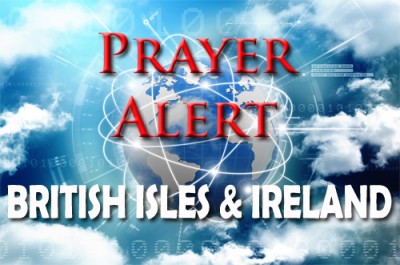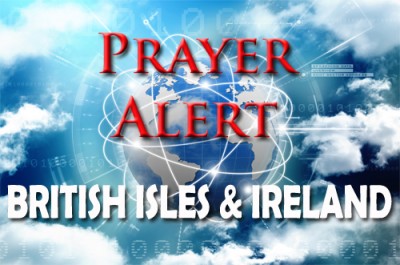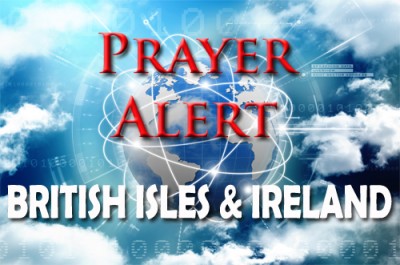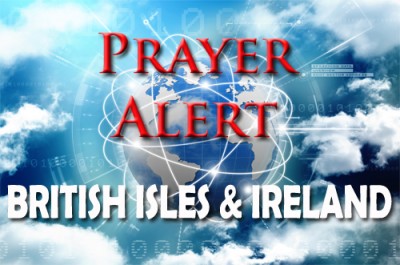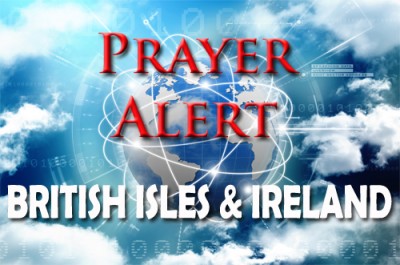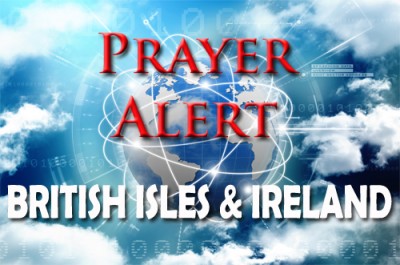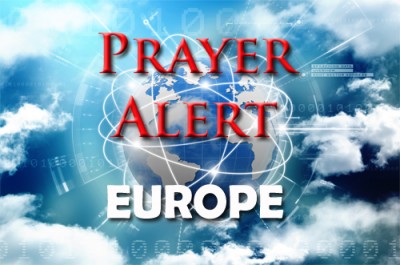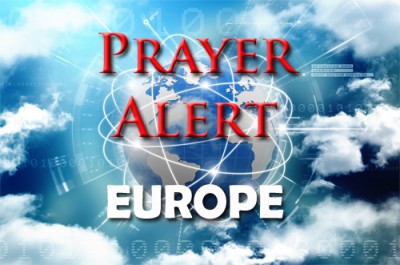Intercessor Focus: Brexit trade deals
01 Sep 2017New trade deals struck between the UK and third-party countries will depend on what Brexit secretary David Davis negotiates with Brussels. Pray for God to use him to shape and establish a Godly future for Britain’s commerce and industry. A free-trade area (FTA) is the region encompassing a trade bloc whose member countries have signed a free-trade agreement. These agreements involve cooperation to reduce trade barriers of import quotas and tariffs, to increase trade of goods and services with each other. Britain’s international trade minister is Liam Fox. Pray for God to strengthen him with wisdom as he seeks both international and EU trade deals. Britain could have to wait until Brexit is finalised to strike a deal with the USA, as Donald Trump has been ‘advised to wait and see’ what effects Brexit will have on the US economy. Pray for God to put His words in the mouths of the president’s advisors.
(Linda Digby, Prayer Alert team)
Christian child to live with Muslim grandmother
01 Sep 2017A family court judge has ordered that a five-year-old Christian child, who had been placed with strict Muslim foster-parents, should live with her Muslim grandmother. A leaked internal document from Tower Hamlets council said the child was ‘very distressed’ after her foster-parents had taken a necklace with a Christian cross from her and banned her from eating bacon. Judge Khatun Sapnara made this decision at Tower Hamlets’ request. The Children's Commissioner, Anne Longfield, said her office would contact Tower Hamlets with questions regarding placing a Christian girl with two Muslim foster families within six months. Media reporting on the case has been criticised by the Muslim community, who said the family dispute had been seized upon in an effort to demonise Islam.
Theresa May on North Korea
01 Sep 2017Speaking to reporters on her way to Japan, Theresa May four times refused to rule out British action to stop North Korea’s illegal missile launches, as the rogue state threatened to increase its military tests. She called on China to do more to rein in dictator Kim Jong-un, and said such pressure was the key to easing the crisis. A British government source suggested that cyber-warfare might already be being deployed against North Korea, saying to reporters, ‘If we were doing that we certainly wouldn’t be telling you.’ Mrs May landed in Japan on 30 August, a day after a North Korean missile flew over Hokkaido. Her talks with President Shinzo Abe will focus on trade, security, and Kim’s nuclear and ballistic missile programmes.
Young people’s fear of crime
01 Sep 2017New research from the Children’s Society reveals that fear of crime is damaging the well-being of 2.2 million UK teenagers, with one in three girls fearful of being followed by a stranger and one in four boys worried they’ll be assaulted. Over one million older children are contending with at least seven serious problems in their lives, significantly harming their happiness. Fear of crime has emerged as the most widespread issue for children, with almost 40% worried about falling victim to two or more crimes. The survey of three thousand 10- to 17-year-olds revealed that 53% have experienced at least three hardships in the last five years, making them markedly unhappier. Teenagers with seven or more serious issues in their lives are ten times more likely to be unhappy than those with none. Also 2.1 million teenagers were worrying because their parents were struggling to pay the bills.
Bishops call for review of benefits freeze
01 Sep 2017Bishops have urged the Government to review its benefits freeze urgently, after a ‘deeply disturbing’ report, by the Child Poverty Action Group, found that poor working parents did not have the cash needed to look after children. Low-paid families are failing to keep up with inflation, and many welfare payments have been frozen. Families working full-time are 13% or £59 a week short of the amount needed to provide their children with a minimum standard of living, according to the report. The Bishop of Gloucester, Rachel Treweek, said, ‘We have heard a lot about how earnings are not keeping up with inflation, but there is an urgency to recognise that low-income working families are taking a double hit due to the four-year freeze in child tax credits and other benefits. With rising inflation, it is time to reconsider this policy in order to protect the living standards of the poorest families.’
Affordable housing
01 Sep 2017Speaking during a tour of the £800-million Countesswells new town development in Scotland on 30 August, the Scottish Conservative Party leader, Ruth Davidson, said there were still fewer homes being built than before the financial crash. She added, ‘We know there is a lack of housing across Scotland. We really need to get our fingers out and build more houses across the country. This new community simply wouldn’t happen without the support of the UK Government.’ Earlier this year 636 homes were earmarked for first-time buyers and renters by the Battersea Power Station Development Company, but by July it was offering only 386 affordable homes. The developers said the entire project may become financially unviable if they are forced to stick to their original figure, adding that they made the undertaking when London’s new-build market was booming and construction costs were lower. See:
Europol: prayer needs
01 Sep 2017Europol assists the 28 EU member states in their fight against serious international crime and terrorism. It also works with many non-EU partner states and international organisations to reduce terrorism, drug trafficking, money laundering, organised fraud, euros counterfeiting, and smuggling. But new dangers of online radicalisation and people-trafficking are growing. The networks behind crimes in these areas are quick to seize new opportunities, and are resilient in the face of traditional law enforcement measures. Pray for stronger and wider monitoring of danger through better intelligence-sharing at the highest levels, so that countries can maximise the use of information from all possible sources. Most terrorists have criminal backgrounds, and terrorism is funded by crime. Pray for police across continents to improve the sharing of databases on criminals as they establish an intercontinental cooperation network, so that policing reaches darker places not yet touched by law and order.
France: Macron’s test on labour reforms
01 Sep 2017France has an unemployment rate of 9.5%, double that of the other big European economies, and President Macron has vowed to cut it to 7% by 2022. The country's unwieldy labour code, 3,000 pages long, is a straitjacket for business. Macron's popularity has plummeted recently as he begins his drive to overhaul the rigid labour laws, giving the details first to the unions and bosses' organisations and later to the public. He promised a ‘revolution’ to free up the energy of the workforce, making it easier for bosses to hire and fire. Protests against the plan, spearheaded by the far left, are expected on 12 September, but two of the biggest unions will not take part.
